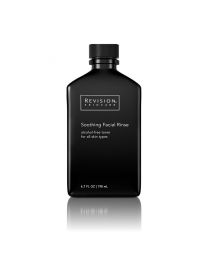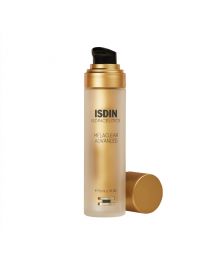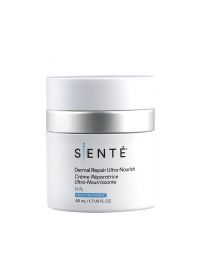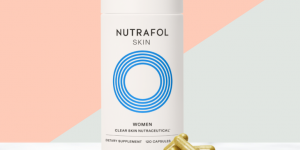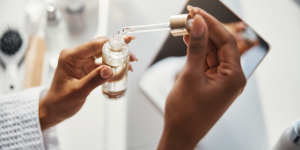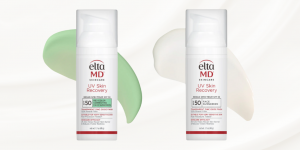Free Shipping Over $100
Free Samples With Every Purchase
Auto Replenishment Available
Authorized Reseller
Top Ingredients to Fade Acne Scars

Managing acne breakouts can be stressful, painful, and even embarrassing for those who struggle with acne. For many, once the acne breakout clears up, their skin struggles are just beginning. Hyperpigmentation and scarring after acne breakouts are relatively common side effects that make a short-term flareup in this skin condition a long-term concern. In this blog, we’ll review the types of acne scars, top products and ingredients to fade acne scars, and a recommended skincare routine incorporating these dermatologist-recommended products.
Understanding Different Types of Acne Scars
Not all acne scars are the same, and the different types of scars require unique treatments to improve appearance. There are three main types of acne scars:
- • Atrophic – these types of scars are the pitted or indented form. Their appearance may be improved over time with retinols and chemical peels.
- • Hypertrophic – these are raised acne scars. These scars respond best to silicone gels to soften the scar tough, raised tissue. Paired with retinol use to remove outer layers of skin, the raised bump may shrink and soften over time.
- • Post-Inflammatory Hyperpigmentation – skin darkening or discoloration that occurs as a result of severe, frequent, or prolonged acne breakouts. You’ll want to look for products with kojic acid, vitamin C, and niacinamide to address hyperpigmentation. These products restore an even skin tone and texture.
Top Ingredients to Fade Acne Scars
Below, we review the top ingredients to fade acne scars and provide some of our top dermatologist-recommended products that incorporate each of these acne scar-fighting ingredients:
- • Vitamin C – products with vitamin C prevent and reverse skin damage by boosting the immune system, triggering healing response, and promoting the production of collagen and elastin proteins. This delivers softer, smoother skin, which is beneficial to fade acne scars. ZO Skin Health Vitamin C Self-Activating is a great serum for reducing the appearance of acne scars.

- • Vitamin E – skincare products that contain vitamin E offer numerous skin health benefits, including fading scars and preventing scar formation. They heal the protective outer layer of skin to improve moisture retention, soften skin, prevent free radical damage, and protect against UVA and UVB damage. Vitamin E also boosts the effects of vitamin C, so you’ll often see these ingredients combined as is the case with SkinCeuticals Vitamin CE Ferulic. A powerhouse antioxidant blend to soften, lighten, and smooth skin while preventing additional skin damage and hyperpigmentation.
- • Retinols – this is the over-the-counter version of stronger retinoids. Both ingredients are derived from vitamin A, and they promote cell turnover and collagen and elastin production. When used regularly, retinols diminish the appearance of acne scars and deliver an even skin tone. MD Skin Essentials Energize is an innovative retinol serum that keeps skin looking and feeling its very best, including reducing the appearance of scarring. The unique formula includes hydrating hyaluronic acid and sea whip extract to prevent skin dryness and irritation that often accompanies retinol use.
- • Niacinamide – this ingredient is derived from vitamin B3, which helps give skin elasticity and glow. Niacinamides are ideal products to prevent scar formation and fade existing acne scars. If you’re looking for a niacinamide treatment for your skincare routine, consider ISDIN Melaclear Advanced. This product lightens hyperpigmentation and works to create an even skin tone.
- • Alpha Hydroxy Acids (AHAs) – you may see AHAs in skincare products labeled as glycolic or lactic acid. AHAs are exfoliating ingredients that dissolve away skin cells and promote cellular regeneration. They diminish the appearance of hyperpigmentation and acne scars. Revision Skincare Brightening Facial Cleanser includes alpha hydroxy acids to deliver smoother, softer skin.
- • Beta Hydroxy Acids (BHAs) – BHAs are most often listed as salicylic acid on ingredients lists. This is another exfoliating ingredient that dissolves damaged skin cells and promotes skin healing and smoothing. Epionce Lytic Plus Tx offers a potent formulation that smooths and softens skin.

- • Kojic Acid – this ingredient is best for hyperpigmentation. Kojic acid reduces dark spots and delivers a clearer, brighter skin tone. SkinCeuticals Discoloration Defense is a serum that works to address hyperpigmentation and irregularities in skin tone and texture.
- • Hyaluronic Acid – scarred skin is usually rough or different in texture compared with other areas of skin. Hyaluronic acid softens and hydrates skin. Paired with an exfoliant, hyaluronic acid effectively improves the appearance and texture of skin. EltaMD UV Daily Broad-Spectrum SPF 40 is a sunscreen formulated with hyaluronic acid to soothe, hydrate, and heal skin while preventing sun damage.
- • Silicone gel (sheet or ointment) – silicone products like Silagen 100% Pure Silicone Gel or Silagen Silicone Strips are ideal for treating raised scars. They soften the scar tissue and reduce acne scar stiffness and discoloration. Silagen can also be used during healing to prevent scar tissue.

How to Incorporate These Ingredients into Your Skincare Routine
Below, we’ve outlined recommended morning and evening routines incorporating some of our recommended products when developing planned skincare for acne scars.
Morning Skincare Routine to Fade Acne Scars
- • Cleanser – Revision Skincare Brightening Facial Cleanser

- • Toner – EltaMD Skin Recovery Essence Toner
- • Serums & Treatments – Epionce Lytic Plus Tx followed by SkinCeuticals Vitamin CE Ferulic and ISDIN Melaclear Advanced for all acne scar types or Silagen 100% Pure Silicone Gel for hypertrophic acne scars
- • Moisturizer – Sente Dermal Repair Ultra-Nourish
- • Sunscreen – EltaMD UV Daily Broad-Spectrum SPF 40
Evening Skincare Routine to Fade Acne Scars
- • Cleanser - Revision Skincare Soothing Facial Rinse
- • Toner – EltaMD Skin Recovery Essence Toner
- • Retinols - MD Skin Essentials Energize
- • Serums & Treatments – SkinCeuticals Discoloration Defense

- • Moisturizer – Sente Dermal Repair Ultra-Nourish
Tips for Enhancing the Effectiveness of Acne Scar Treatments
One of the most important things to remember when treating acne scars is that it will take time and consistent care to see your desired results. While it can be frustrating, stick with treatment for at least month. If you don’t see improvement, you can discuss other options with your dermatologists. Additionally, you should always protect skin from sun damage, but this is especially important when treating acne scars. The majority of scar treatment products contain ingredients that may make skin sensitive to sun damage. During acne scar treatment, sun exposure can increase risk for hyperpigmentation, so it’s even more important to stick with your daily sun care routine. Finally, make sure you are staying healthy, exercising, getting enough sleep, and reducing stress. This will not only help ensure your acne scar treatment is effective, but it will also help with the management of acne breakouts and boost overall skin health.
When to Consult a Dermatologist
If you’re having trouble managing acne on your own, breakouts are frequent or long lasting, or you have significant scarring, it may be time to consult with a dermatologist. Your dermatologist can help you develop a personalized at-home skincare routine to ensure you are able to properly manage acne breakouts. They can also recommend and provide dermatologic acne scar treatment options like:
- • Chemical peels – chemicals are applied topically to dissolve outer, damaged layers of skin. This reveals healthy skin cells, promotes skin healing, and encourages the production of collagen and elastin.
- • Dermabrasion – this treatment also removes outer skin layers, but it uses an abrasive substance to scrub away dead and damaged skin cells.
- • Laser therapy – high intensity lasers are used to remove damaged skin cells without causing irritation to health skin.
- • Microneedling – very fine-gauge needles are used to create microscopic wounds in the skin. This jump starts the healing process and improves the appearance of scars that develop after poor wound healing.
- • Dermal fillers – for atrophic scars, dermal fillers may be used to recreate the lost underlying structures and smooth skin.
Fade Acne Scars & Improve Skin Health
For those who struggle with acne, living with noticeable acne scarring doesn’t have to be the new norm. There are numerous products that prevent scarring and fade existing scars to ensure you look and feel your best. If you have severe scarring or you’re struggling to manage acne with a consistent at-home skincare routine alone, don’t hesitate to reach out to a dermatologist. The board-certified dermatologists who curated the list of products on the DermSkincare site can offer personalized recommendations, advanced dermatologic treatment options, and other guidance to improve your overall skincare routine.
Learn More About Dermatologist-Recommended Skincare Products
Whether you’re working on a skincare plan to fade acne scars, manage a breakout, or keep skin glowing, the DermSkincare team has you covered. Take some time to explore our full site to see more of our high-quality skincare products hand-selected by knowledgeable dermatologists. Come back regularly for more skin health tips and tricks in our blog.











